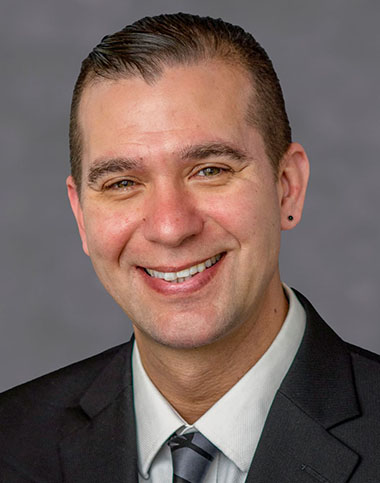The First Americans in Minority Health and Health Disparities Research
As we celebrate Native American Heritage Month this year, we are recognizing First American researchers in fields of minority health and health disparities, whose career trajectories have been shaped by the NIMHD-sponsored Loan Repayment Program (LRP) and subsequent research program grants. Meet Lonnie A. Nelson, Ph.D.

Dr. Lonnie A. Nelson
Dr. Nelson, an associate professor at the Washington State University College of Nursing, is an American Indian descended from the Eastern Band of Cherokee Indians (Ani Kituwah) and German and Scotch immigrants. Dr. Nelson is engaged in research, education, and training to improve the health and well-being of Native Americans. He is also co-Director of Washington State University’s Partnerships for Native Health, a research program to address health disparities through multiple avenues.
Dr. Nelson has extensive clinical and research experience in neurocognitive assessment and in rehabilitation interventions for people with brain injury. His research uses a community-based approach to ensure that all activities result in long-term improvements in the lives of participating community members. His additional research interests focus on the elimination of health disparities in American Indian and Alaska Native populations living in urban areas. Dr. Nelson’s preferred approach to changing health behaviors is to implement culturally adapted evidence-based interventions and other patient-centered models, such as motivational interviewing and harm reduction counseling.
Dr. Nelson’s inspiration to work on addressing minority health and health disparities stems from his family experience. Dr. Nelson’s oldest brother died from complications of diabetes at the age of 49, following a long downward spiral of increasing disability from neuropathy and amputation of both feet. Dr. Nelson knows there were clear structural, social, economic, psychological, emotional, and behavioral factors that contributed to his brother’s disease course. He is motivated to address such factors to achieve better disease outcomes for all of his relations experiencing health disparities.
Q & A with Dr. Lonnie A. Nelson
How is your research impacting public health?
The primary focus of my research is aimed at healthy aging for Native elders. However, this includes anything that could potentially prevent a Native person from living to become an elder. My current portfolio spans substance use interventions, suicide prevention interventions, investigation of the links between sleep health and chronic disease risk, as well as specific risk and protective factors for Alzheimer's disease and related dementias among Native elders living in urban environments. Our elders carry our stories and traditions, the roots of who we are as Indigenous people, and we have to preserve those roots, to be able to teach the next generation who they are as Indigenous people.
How has the Loan Repayment Program (LRP) impacted your career?
The LRP allowed me to devote myself entirely to research. My student loan burden is significant, due to the disadvantaged background from which I come. Being the first person in my family to graduate from high school, there wasn't a lot of familial financial support available to fund my education. Without the LRP, I would have been forced to remain in private clinical practice (I'm a clinical psychologist by training) to be able to repay that debt, as academic research positions pay significantly lower wages than one can earn in clinical practice.
What was your motivation in becoming an independent research investigator?
My initial decision to pursue research full-time was based on the math. If I saw seven clients per day for a career of 20 years, perhaps a few hundred people might be able to personally benefit. When I compared that to the work of one of my mentors, Dr. Spero Manson, whose research largely motivated Congress to fund the Special Diabetes Project for Indians, which had reached over 30,000 Native people by 2007, the approach that would have the largest positive impact for my relatives was pretty clear to me.
Is there a particular challenge you had to overcome in your career, and what advice would you give to the next generation?
It was difficult for me to reconcile the Western reductionist paradigm of academia with the more traditional worldview I grew up with. I would just point out to future generations that these are not mutually exclusive perspectives. The Western model simply hasn't caught up to the more holistic perspective our families of origin have often instilled in us. You have to put in the effort, but they can be reconciled with an inclusive enough lens.
What is your vision for health equity in this new decade?
I'd like to see structural barriers to care and prevention services faced by minority populations removed in a manner that's commensurate with their severity and historical impact on each individual group. I'd like to see corrective measures taken to address past systemic abuses of power and trust.
Page updated Dec. 24, 2024

















